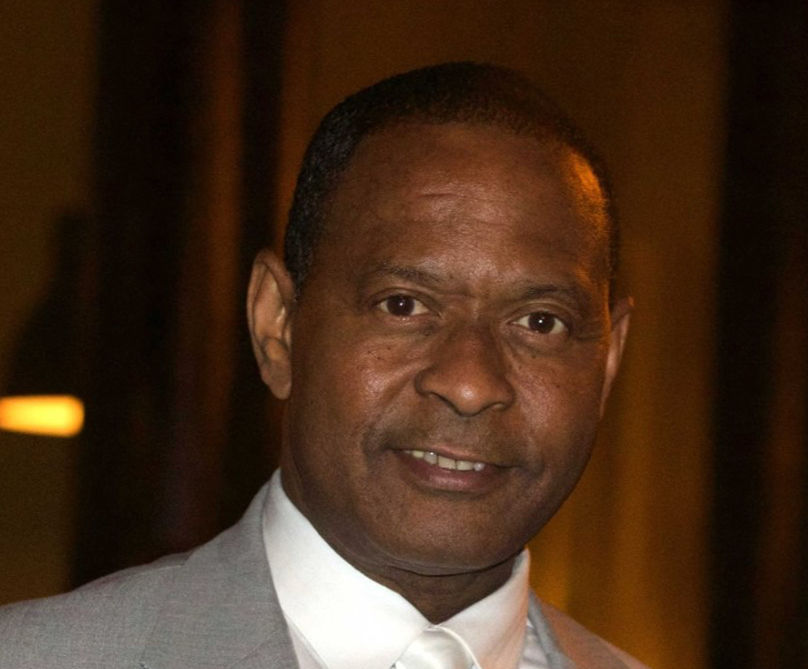Lost In The Promise Land
- Donald V. Watkins

- Dec 24, 2018
- 3 min read
By Donald V. Watkins
©Copyrighted and Published on December 24, 2018
While doing some last minute Christmas shopping with my brother James today in the Pineville subdivision of Charlotte, North Carolina, we passed a Sears store that was one of 300 that was closed in 2018. We discussed at length the positive impact Julius Rosenwald (1862-1932) played in improving the lives of millions of blacks in America during the 20th Century. Rosenwald was an owner, President and Chairman of the Board of Sears, Roebuck and Company.
Rosenwald was also a philanthropist who was deeply concerned about the poor state of African-American education, especially in the racially segregated Southern states, where their schools were perpetually underfunded.
In 1912, Tuskegee Institute President Booker T. Washington asked Rosenwald to serve on the school’s board of trustees, a position he held until his death. Rosenwald and his wealthy industrialist friends in the North endowed Tuskegee handsomely so that Washington could spend less time fundraising and more time managing the school.
Later in 1912, Rosenwald provided funds to Tuskegee Institute for a pilot program to build six new small schools in rural Alabama. They were designed, constructed and opened between 1913 and 1914. Tuskegee architects and staff oversaw the construction projects. This construction model proved extremely successful.
Booker T. Washington died in 1915. In 1017, Rosenwald established the Rosenwald Fund, which primarily served African-American students in rural areas throughout the South. The Fund "sunset" in 1948.
The school building program was one of the Fund’s largest programs. Using the architectural model plans developed at Tuskegee Institute, the Rosenwald Fund spent over $4 million to help build 4,977 schools, 217 teachers' homes, and 163 shop buildings in 883 counties in 15 states, from Maryland to Texas.
The Rosenwald Fund made matching grants that required community support, cooperation from all-white school boards, and local fundraising. Black communities raised more than $4.7 million to aid in the construction of these schools, which became known as “Rosenwald Schools.”
By his death in 1932, the Rosenwald schools could accommodate one third of all African-American children in Southern U.S. schools. These schools contributed greatly to the emergence of a black middle class in America during the 1940 and 50s.
In addition to funding schools for blacks, the Rosenwald Fund also made fellowship grants directly to African-American artists, writers, researchers and intellectuals between 1928 and 1948. The late civil rights leader Julian Bond, whose father received a Rosenwald fellowship, called the list of grantees a "Who's Who of black America in the 1930s and 1940s." Hundreds of grants were disbursed to artists, writers and other cultural figures, many of whom became prominent or already were, including photographer Gordon Parks Jr., graphic artist Elizabeth Catlett, poet Claude McKay, pioneering surgeon Dr. Charles Drew, sculptor Augusta Savage, anthropologist and dancer Katherine Dunham, singer Marian Anderson, writers Ralph Ellison, W.E.B. Du Bois and James Weldon Johnson, psychologists Kenneth and Mamie Clark, dermatologist Theodore K. Lawless, and poets Langston Hughes, Maya Angelou and Rita Dove.
Misplaced Loyalties
As James and I talked, we could not understand why African-American communities in the U.S. would knowingly allow Sears to struggle as a retailer. While African Americans make up just 14% of the U.S. population, we are responsible for some $1.2 trillion in purchases annually, according to a 2018 report from Nielsen on the current buying power of consumers of color. In many categories, the percentage of black spending is far greater than our percentage of the general population.
Yet, African-Americans prop up brand names that have virtually no track record of engaging in philanthropic giving to black communities. Unlike Rosenwald and Sears, brands like Gucci, Hermès, Louis Vitton, Versace, Christian Dior, Michael Kors, Nieman Marcus, Ralph Lauren, Prada, Bloomingdales, Christian Louboutin, Jimmy Choo, and many other high-end retailers show no respect for black spending. These brands would struggle in the retail marketplace without the one-way loyalty African-American customers gratuitously confer upon them.
Something is seriously wrong with this picture. Why do we continue to spend our hard-earned dollars propping up luxury retailers that do not support our communities?
How did we become lost in the promise land? Why do we reward those who openly neglect our communities? Why do we fail those who have a demonstrated track record of lifting us up?
PHOTO: A closed Sears store.









Comments